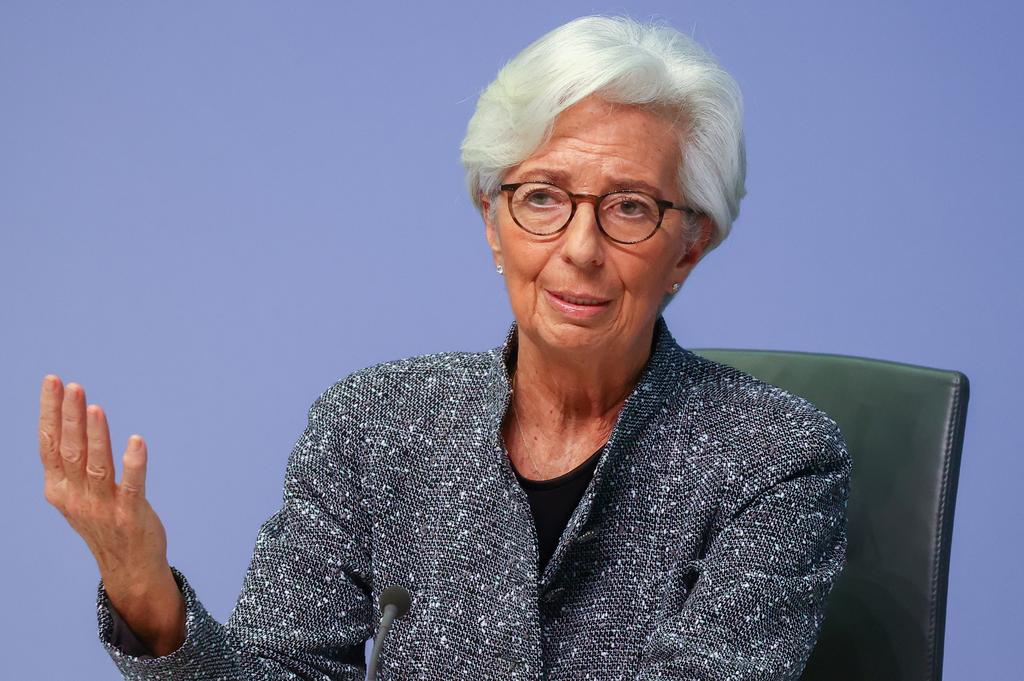The European Central Bank left policy unchanged on Thursday, resisting pressure to unveil more stimulus amid a new wave of the pandemic, but provided the clearest hint yet of fresh easing at its next meeting in December.
With a second wave of coronavirus infections threatening to overwhelm Europe before the winter, the bloc’s biggest economies Germany and France announced new lockdowns overnight. Others among the 19 countries that use the euro are also shutting much of their services sectors, a blow to the fledgling recovery.
The ECB warned that the pandemic posed risks to economic growth and it would reassess whether more support is needed at its December 10 meeting, when new projections become available.
“The Governing Council will recalibrate its instruments, as appropriate, to respond to the unfolding situation and to ensure that financing conditions remain favourable to support the economic recovery and counteract the negative impact of the pandemic on the projected inflation path” the ECB said.
But having already lined up unprecedented firepower in the spring, the ECB appears in no hurry to act, although it retained a long-standing pledge to provide more stimulus if needed.
The ECB has set aside 1.35 trillion euros for bond purchases until mid-2021 and still has around 700 billion euros of that cash to spare, giving it the means to keep markets calm even without a fresh commitment.
Attention now turns to ECB President Christine Lagarde 1330 GMT news conference, where she must walk a tightrope, signalling commitment to keeping financing conditions super-easy but not raising market expectations so much that even sizable new support in December would be seen as a disappointment.
DEEPENING GLOOM
The ECB’s problem is that fresh COVID-19 restrictions are challenging its view that the euro zone economy will grow back to its pre-crisis level by the end of 2022.
In France, people must mostly stay at home and can go to work only if their employer deems it impossible for them to do the job remotely. Schools will stay open.
Germany, whose economy was already losing steam, will shut bars, restaurants and theatres in November, though schools will stay open and shops will be allowed to operate with strict limits on access.
Spain, one of Europe’s worst COVID-19 hotspots, where the government is planning to announce a six-month state of emergency, may already be back in recession, while Italy has also unveiled new restrictions.
“The economic backdrop warrants more action now,” Florian Hense at Berenberg said prior to the ECB’s decision. “Over the past few weeks, things have turned to the worse again … Economic growth is grinding to a halt in the fourth quarter.”

Inflation expectations, the ECB’s main worry, are also declining. While the threat of deflation is not yet back on the agenda, inflation may fall short of the ECB’s target of nearly 2% for many more years to come.
But there are clear limits to the ECB’s powers. Buying roughly 100 billion euros ($118 billion) of debt a month, it has already pushed borrowing costs to record lows, and even the spread between the borrowing costs of euro zone members is back to its pre-crisis levels.
Banks, flush with liquidity, borrow for minus 1% and their biggest fear is deteriorating credit quality, not the availability of cheap funding.
Nevertheless, once the ECB has unveiled fresh economic projections at its Dec. 10 meeting, it is likely to extend and expand its 1.35 trillion euro Pandemic Emergency Purchase Programme and improve funding conditions for banks.
It is also expected to keep pressure on governments to ensure budget support and finally agree on a long-delayed, 750 billion recovery package for the bloc.


























